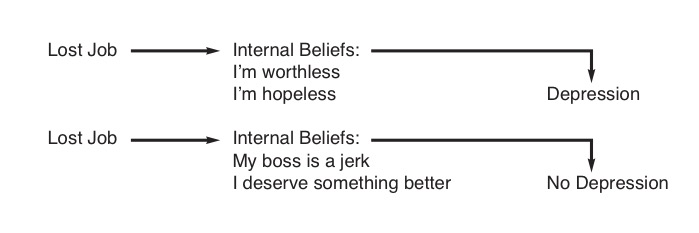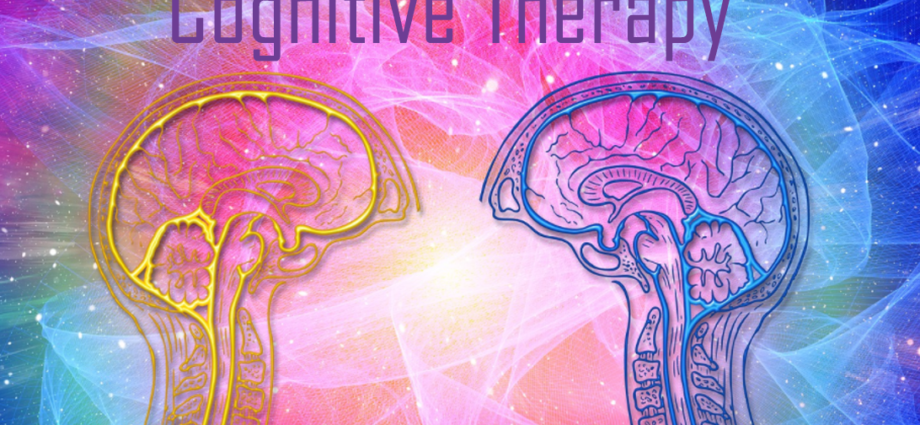During the second half of the 20th century psychoanalysis was seen by many psychologists as less than scientific, and thus was slowly replaced by newer cognitive therapy techniques. Cognitive therapy assumes that our thinking colors our feelings and places an emphasis on examining people’s perceptions of their experiences. Cognitive therapy teaches people new ways of thinking and being based on the assumption that thoughts occur between events and our emotional reactions.

The person’s emotional reactions do not occur directly because of the event, but by the person’s thoughts in response to it. Therapy teaches that between the event and our response lies the mind.
A Vicious Cycle of Depression
Self-blaming and overly generalized explanations of bad events are often an integral part of the vicious cycle of depression. The person experiencing depression may interpret a suggestion as criticism, disagreement and dislike; praise as flattery, or friendliness as pity. Ruminating on such thoughts sustains the bad mood. Therefore if depressed thinking patterns can be learned, then surely they can be replaced.
Take off Those Dark Glasses
Cognitive therapists try in various ways to teach people new and more constructive ways of thinking. If people are miserable, they can be helped to change their minds. Gentle questioning attempts to help people discover their irrationalities, and to persuade them to take off those dark glasses through which they view life. (Becket et al, 1979).
This report is not a diagnosis. We hope this information can guide you toward improving your life.
Review our Knowledge Base or the links displayed on this page for similar and related topics.

